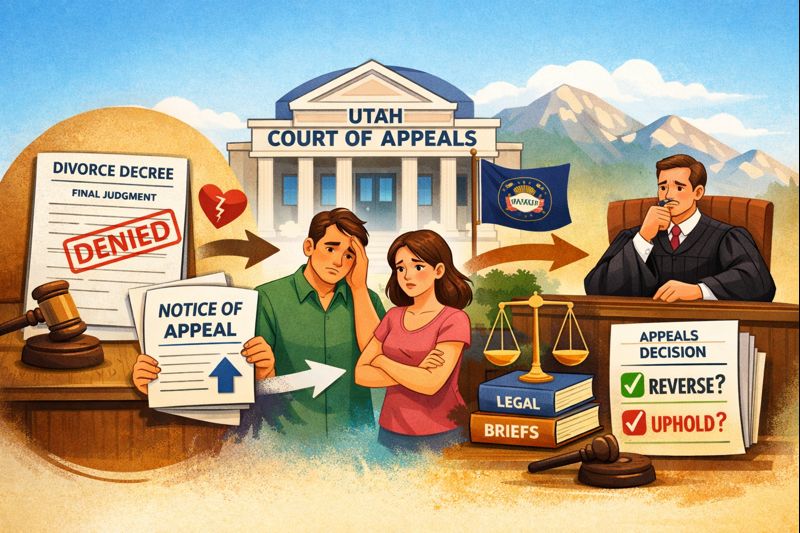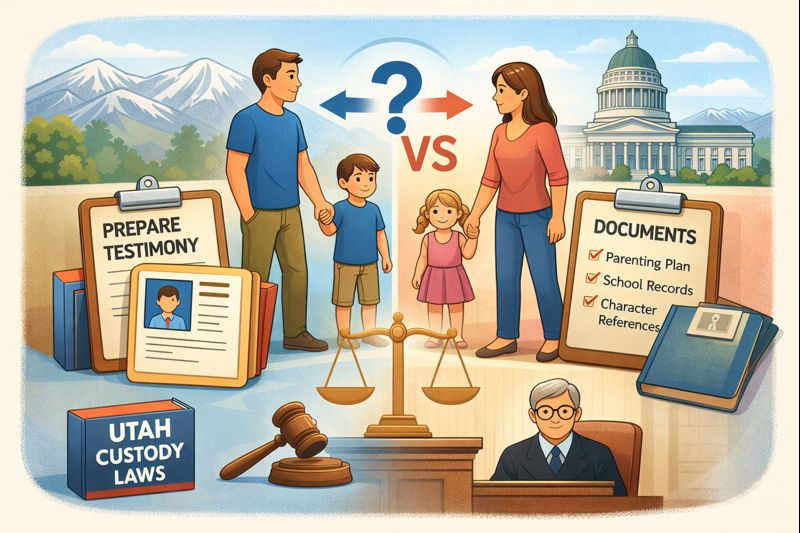When Utah couples file for divorce, one of the first major steps is mediation. Utah law generally requires divorcing spouses to participate in at least one session of mediation before a court will proceed to trial. The goal is to help both parties reach a voluntary agreement on issues like property division, custody, alimony, and child support without needing a contested hearing.
Understanding how mediation works and how to prepare can make the process far less stressful and more productive.
What Is Divorce Mediation in Utah
Mediation is a structured but informal process where both spouses meet with a neutral third party called a mediator. The mediator does not make decisions or take sides. Instead, they guide discussion, help clarify issues, and encourage compromise so the couple can reach an agreement.
In Utah, mediation is required under Utah Code § 30-3-39, which authorizes courts to order mediation in family law cases. Mediation can happen in person or virtually, and it typically occurs after the divorce petition has been filed and both spouses have exchanged financial information.
Watch: What Is Divorce Mediation and How It Works
Many couples find that a single, well-prepared session can resolve most issues. If not, the mediator can schedule additional sessions focused on the toughest topics.
Key Benefits of Mediation
Faster and more cost-effective than litigating every issue.
Greater control over outcomes for both spouses.
Reduced conflict, especially helpful when children are involved.
Flexible, creative solutions a court may not order.
If full agreement is reached, the mediator helps prepare a stipulation and settlement agreement for court approval. Once signed by the judge, it becomes part of the final decree.
How to Prepare for Mediation
Preparation is key. Come ready to discuss finances, property, custody, and support with an open mind and a solutions-first mindset.
Before your session, do the following
Review financial disclosures and gather pay stubs, bank statements, and insurance details.
List your goals and non-negotiables to keep priorities clear.
Be ready to listen and compromise where possible.
Watch: How to Prepare for Mediation
Arrive on time, well-rested, and with a realistic idea of potential trade-offs. Your mediator will keep discussions focused and productive.
Typical Mediation Procedures
Opening and Ground Rules
The mediator explains confidentiality, roles, and goals for the session.
Issue Framing
Each spouse briefly summarizes priorities on property, custody, alimony, and support.
Guided Negotiation
The mediator facilitates discussion and may hold private caucuses to explore options and tradeoffs.
Documenting Agreements
Agreed terms are drafted into a stipulation for filing with the court. Remaining issues can proceed to trial.
Watch: What to Expect at Divorce Mediation
Mediators aim to keep momentum by focusing on areas of agreement first, then narrowing differences on tougher topics.
Common Mistakes to Avoid
Arriving unprepared or without complete financial documents.
Being rigid and refusing to explore compromises.
Letting emotions drive the discussion rather than solutions.
Expecting the mediator to decide who is right or wrong. Mediators facilitate; they do not rule.
For high-conflict situations, skilled mediators use structure and caucusing to lower tension and keep progress steady.
Required Forms and Follow-Up
| Form | Purpose |
|---|---|
| Stipulation and Settlement Agreement | Documents the agreements reached in mediation for court approval. |
| Motion to Enter Decree of Divorce | Asks the court to enter a final decree based on the settlement. |
| Mediator’s Report | Confirms attendance and whether full or partial agreement was reached. |
If mediation does not resolve all issues, the court may schedule additional sessions or allow remaining disputes to proceed to trial.
Key Utah Statute
Mediation in divorce cases is governed by Utah Code § 30-3-39, which outlines the court’s authority to require mediation and related procedures.
Talk to Gibb Law About Utah Divorce Mediation
Mediation can save time and cost, but the agreements you make can have long-term effects. Our family law team helps you prepare, negotiate effectively, and protect your interests from first session to final decree.
Schedule a Consultation


